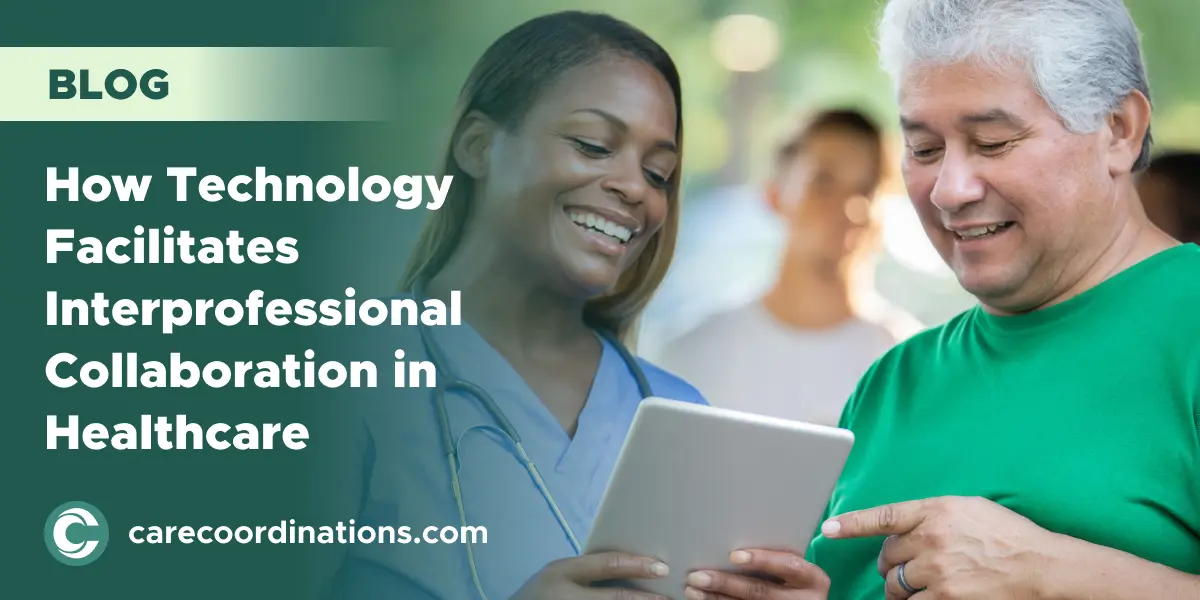In healthcare, interprofessional collaboration emerges as a cornerstone, weaving together diverse expertise towards a unified goal: enhanced patient care. Understanding what interprofessional collaboration in healthcare truly means involves recognizing it as an orchestrated effort where healthcare professionals from various specialties work together, sharing knowledge and responsibilities to improve patient outcomes.
The importance of interprofessional collaboration in healthcare cannot be overstated; it is a fundamental aspect that drives efficiency, reduces errors, and fosters a holistic approach to patient care. In this digital age, technology plays a pivotal role in enhancing this collaboration, offering tools and platforms that bridge gaps, streamline communication, and ensure that every healthcare team member is on the same page.
Also Read: Building a Culture of Interprofessional Collaboration in Healthcare Organizations
The Evolution of Interprofessional Collaboration in Healthcare
From Traditional Practices to Modern Integrations
The journey of interprofessional collaboration in healthcare has transitioned from siloed efforts to integrated care models. Historically, healthcare professionals worked independently, with minimal cross-disciplinary interaction, often leading to fragmented care. Today, we embrace a model where collaborative healthcare strategies are encouraged and deemed essential for quality care delivery.
Key Milestones in Healthcare Collaboration
Significant milestones in healthcare collaboration have shaped its current landscape. These include the introduction of integrated care pathways for streamlined patient management, the establishment of professional guidelines to encourage teamwork among healthcare providers, and the development of education programs focused on enhancing collaborative skills. Together, these milestones reflect a movement towards a more patient-centered approach in healthcare, highlighting the critical role of interprofessional collaboration in improving patient outcomes.
Core Technologies Driving Interprofessional Collaboration
1. Electronic Health Records (EHRs)
EHRs have revolutionized how information is shared and managed, making them a cornerstone of interprofessional collaboration infrastructure. They allow for:
- They are centralizing patient data for easy access and sharing, thus ensuring that every team member is informed.
- They provide real-time updates and alerts, crucial for timely interventions and coordination.
A pivotal study found that the implementation of EHRs significantly improves the quality of patient care. According to a report by the Office of the National Coordinator for Health Information Technology, healthcare providers who utilized EHRs observed a 30% reduction in medication errors, underscoring the critical role of technology in enhancing patient safety and interprofessional collaboration. Source URL
2. Telehealth Platforms
Telehealth platforms have broken down geographical barriers, making it easier than ever to facilitate remote consultations and meetings. They also expand access to specialist care and opinions, which is precious in rural or underserved areas.
3. Communication Tools
Secure messaging apps and collaboration platforms have become indispensable for real-time communication among healthcare professionals. These tools ensure that information is shared promptly and securely, enhancing the efficiency of collaborative efforts.
4. Clinical Decision Support Systems (CDSS)
CDSS provides evidence-based recommendations and enhances diagnostic accuracy and treatment plans. They support healthcare professionals in making informed decisions, thus improving patient outcomes.
Also Read: The Importance of Effective Communication in Nursing: Why It Matters
Benefits of Technology-Enabled Collaboration
• Improved Patient Outcomes
Integrating technology in collaborative efforts leads to faster diagnosis and treatment adjustments, significantly reducing medical errors and enhancing patient safety—an example of interprofessional collaboration in healthcare where technology makes a tangible difference.
• Efficiency and Cost-Effectiveness
Technology streamlines operations and reduces redundancy, lowering healthcare costs through optimized resource use. It exemplifies how to improve interprofessional collaboration in healthcare, ultimately benefiting the healthcare system.
• Enhanced Professional Development
Continuous learning opportunities arise from technology-enhanced collaboration, leading to increased satisfaction and reduced burnout among healthcare professionals. This environment encourages sharing knowledge and best practices, fostering professional growth.
Challenges and Solutions
• Data Security and Privacy
With the adoption of technology, ensuring the security and privacy of patient data becomes paramount. Implementing robust cybersecurity measures and educating staff on data protection is essential to safeguarding information.
• Interoperability Issues
Achieving seamless integration between different technologies remains a challenge. Standardizing data formats and encouraging collaboration between technology providers are crucial for overcoming these obstacles.
• Change Management
Adopting new technologies can be challenging. Strategies for managing this resistance include comprehensive training and ongoing support for healthcare professionals, which ensures a smooth transition to new systems.
Future Directions
• Emerging Technologies and Their Potential
The potential of AI and machine learning in diagnostics, along with the use of wearables and IoT devices for patient monitoring, represents the frontier of technology in healthcare. These innovations promise to enhance interprofessional collaboration and patient care further.
• Fostering a Culture of Innovation
Encouraging ongoing education and tech adoption is essential for maintaining a competitive edge and improving patient care. Policies and incentives that support technology-driven care models will be crucial in shaping the future of healthcare.
Also Read: Why Patient Engagement Is Key to Improving Healthcare Outcomes?
Unlocking the Future of Health: Embracing Technology for Seamless Interprofessional Collaboration
The role of technology in facilitating interprofessional collaboration in healthcare is transformative and expanding. With Care Coordinations at the forefront of this evolution, the future looks promising as we continue to leverage cutting-edge technologies to break down barriers, streamline processes, and enhance the quality of care provided.
Interprofessional collaboration in healthcare, supported by technological advancements, cannot be underestimated. It is the bedrock upon which the future of patient-centered, efficient, and adequate healthcare rests.


